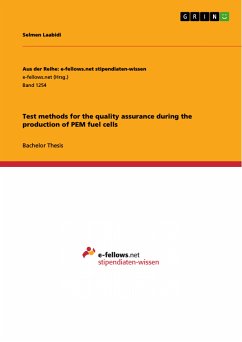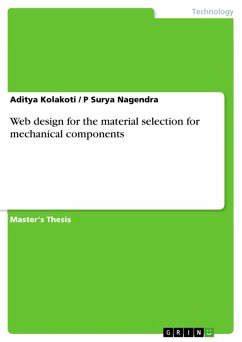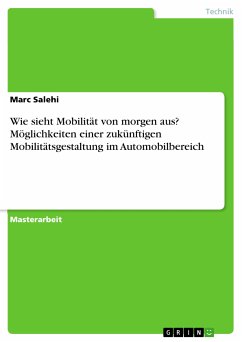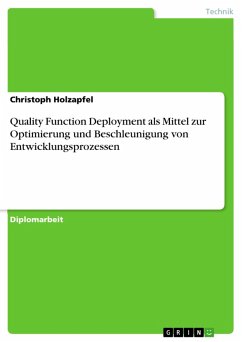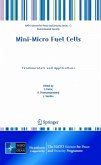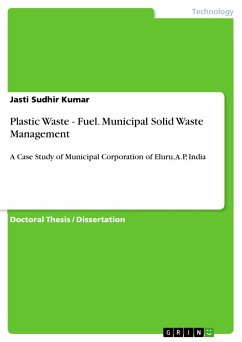Bachelor Thesis from the year 2015 in the subject Engineering - Mechanical Engineering, grade: 1,7, Swiss Federal Institute of Technology Zurich (Institute of machine tools and manufacturing), language: English, abstract: With the rising cost of energy, the increasing environmental awareness and the global warming, alternative drive systems are becoming increasingly important. Here, the fuel cell technology makes as clean and reliable method of energy production a great contribution. Many automotive companies like Hyundai, Daimler and Toyota are working intensively on fuel cell vehicles. Toyota has succeeded in December 2014 to bring the first car powered by hydrogen, the Toyota Mirai, on the market and it expects in the 2020s already with tens of thousands of vehicles annually. Therefore, the sales numbers will be increasing, which will require a mass production of fuel cells. Fuel cell technology is based on the principle of electrolysis. In order to generate electricity, hydrogen and oxygen are supplied to the fuel cell, where they react to electricity, water and heat. Thus cars powered by fuel cells have many advantages over cars with conventional sources, because they are environmentally friendly and save the long load time characterizing electric cars. However, the current manufacturing way does not meet the requirements of mass production. To date, the components of the fuel cell are often assembled to a stack without sufficient testing, which significantly increases the potential for errors. After assembly, an end-of-line test is performed, wherein the fuel cell and its functions are checked up for up to 24 hours. To achieve higher production volume, the duration of the end-of-line tests must be reduced to a few minutes. This requires a total quality management and quality assurance during production in order to achieve a quick and error-free one. The aim of this work is to shorten the duration of the end-of-line test by the development of a montage accompanying control plan. The first part deals with the basics of the fuel cell technology. The most important historical events of the development of fuel cells are mentioned. In order to understand their functioning, the chemical and physical principles are explained and the functions of the individual components are described. In the second part, a Failure mode and effect analysis (FMEA) is performed. Based on a literature review, this analysis aims at determining the most important errors in the components of the fuel cell. Its results deduce the most necessary test characteristics to be checked during the manufacturing of the fuel cell. [...]
Dieser Download kann aus rechtlichen Gründen nur mit Rechnungsadresse in A, B, BG, CY, CZ, D, DK, EW, E, FIN, F, GR, HR, H, IRL, I, LT, L, LR, M, NL, PL, P, R, S, SLO, SK ausgeliefert werden.

